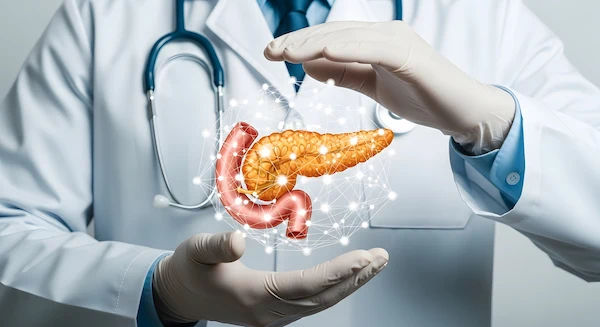What Leads To Signs Of Pancreatic Cancer And Types
Learn about pancreatic cancer: its early signs, causes, risk factors, and types. Understand when to seek medical advice for timely detection and treatment.

Written by Dr. Rohinipriyanka Pondugula
Reviewed by Dr. M L Ezhilarasan MBBS
Last updated on 13th Jan, 2026

Introduction
Pancreatic cancer is often called a "silent disease" because its early signs can be vague and easily mistaken for other common ailments. Understanding what to look for and what leads to this serious condition is the first step toward proactive health. This article delves deep into the world of pancreatic cancer, moving beyond the basics to explore the nuanced signs, the complex web of causes and risk factors, and the different types of tumours that can develop. Whether you're concerned for yourself or a loved one, or simply seeking to be well-informed, our goal is to provide clear, comprehensive, and actionable knowledge. We'll break down the science behind the symptoms, explain why certain factors increase risk, and guide you on when it's crucial to seek medical advice from a trusted healthcare provider like Apollo24|7.
What Are the Early Signs and Symptoms of Pancreatic Cancer?
Recognising the early symptoms of pancreatic cancer is challenging but critical. The pancreas is located deep in the abdomen, allowing tumours to grow undetected for some time. Often, symptoms only appear when the tumour is large enough to affect nearby organs or when it causes systemic changes.
Common Early Warning Signs
- Jaundice: This is one of the most telltale signs, characterised by yellowing of the skin and the whites of the eyes. It occurs when a tumour in the head of the pancreas blocks the bile duct, causing a buildup of bilirubin. Dark urine and light-coloured, greasy stools often accompany jaundice.
- Abdominal and Back Pain: A dull, persistent ache in the upper abdomen that often radiates to the mid or upper back is common. This pancreatic cancer back pain is caused by the tumour pressing against nerves and organs.
- Unexplained Weight Loss and Loss of Appetite: Even without trying, individuals may experience significant weight loss. This can be due to the cancer consuming the body's energy or the pancreas failing to produce enough digestive enzymes, leading to poor nutrient absorption.
- Digestive Issues: Nausea, vomiting, and indigestion that don't improve with standard treatments can be a red flag.
Symptoms Based on Tumour Location
- Tumours in the Head of the Pancreas: More likely to cause jaundice and weight loss early on due to bile duct obstruction.
- Tumours in the Body or Tail: More likely to cause abdominal pain and weight loss, as they can grow larger before affecting other structures.
Systemic Symptoms: When Cancer Spreads
As cancer advances, it can lead to more generalised symptoms like fatigue, weakness, and the development of new-onset diabetes, especially in people over 50 with a healthy weight and lifestyle.
Consult an Oncologist for the best advice
What Leads to Pancreatic Cancer? Unpacking the Causes and Risks
The exact trigger for pancreatic cancer remains unknown, but science has pinpointed how it starts and what significantly increases a person's odds.
The Root Cause: Genetic Mutations
At its core, what causes pancreatic cancer is damage (mutations) to the DNA within pancreatic cells. These mutations instruct the cells to grow uncontrollably and to continue living when normal cells would die. This accumulating mass of cells can form a tumour and potentially spread.
Key Risk Factors You Should Know
While anyone can develop pancreatic cancer, certain factors elevate the risk. It's rarely one factor but a combination.
Non-Modifiable Risk Factors (Age, Genetics, Race)
- Age: Risk increases significantly after age 65.
- Family History and Genetics: Inherited genetic syndromes like BRCA1/BRCA2 mutations, Lynch syndrome, and
familial atypical multiple mole melanoma (FAMMM) syndrome account for about 10% of cases. A family history of the disease doubles or triples an individual's risk. - Race: African Americans have a slightly higher incidence rate than other races, for reasons not fully understood but potentially linked to higher rates of other risk factors like diabetes.
Modifiable Risk Factors (Smoking, Diet, Weight)
- Smoking: Smokers are two to three times more likely to develop pancreatic cancer. It's one of the most significant modifiable pancreatic cancer risk factors.
- Obesity and Diet: A diet high in red and processed meats, sugar, and saturated fats is linked to a higher risk. Obesity, particularly in early adulthood, increases risk by about 20%.
- Heavy Alcohol Use: Chronic, heavy consumption can lead to chronic pancreatitis, a known risk factor.
Associated Medical Conditions (Diabetes, Chronic Pancreatitis)
- Chronic Pancreatitis: Long-term inflammation of the pancreas is a strong risk factor.
- Diabetes: Long-standing type 2 diabetes is a risk factor. More notably, a sudden diagnosis of new-onset diabetes and cancer in someone over 50 can be an early warning sign of a pancreatic tumour.
Types of Pancreatic Cancer: It's Not One Disease
Understanding the types of pancreatic tumours is crucial because they behave differently and require distinct treatment approaches. They are broadly classified into two groups.
Exocrine Tumours: The Most Common Type
These make up over 95% of all pancreatic cancers. They start in the exocrine cells, which produce enzymes that aid digestion.
Pancreatic Adenocarcinoma
This is the most common form, accounting for about 90% of exocrine cancers. It develops in the lining of the ducts that carry digestive enzymes out of the pancreas.
Other Exocrine Cancers
These are much rarer and include adenosquamous carcinomas, squamous cell carcinomas, and colloid carcinomas.
Pancreatic Neuroendocrine Tumours (PNETs)
Also known as islet cell tumours, these account for less than 5% of cases. They originate in the endocrine cells of the pancreas, which produce hormones like insulin and glucagon that regulate blood sugar. Pancreatic neuroendocrine tumour symptoms are often related to the excess hormones they produce (e.g., insulinomas cause low blood sugar) and they generally have a better prognosis than adenocarcinomas.
How is Pancreatic Cancer Diagnosed?
If pancreatic cancer is suspected based on symptoms and risk factors, a doctor will recommend tests. This typically involves imaging scans like CT, MRI, or endoscopic ultrasound (EUS) to visualise the pancreas. A biopsy, often taken during an EUS, is the only definitive way to confirm a diagnosis. Blood tests for tumour markers like CA19-9 can support diagnosis and monitor treatment but are not reliable for screening.
Prevention and Early Detection Strategies
While not all cases are preventable, you can reduce your risk by not smoking, maintaining a healthy weight, eating a diet rich in fruits, vegetables, and whole grains, and limiting alcohol. For those with a strong family history or known genetic syndromes, genetic counseling is advised. Currently, there is no standard screening test for the general population, making awareness of symptoms paramount.
When to See a Doctor: Don't Ignore the Signs
If you experience unexplained symptoms like jaundice, persistent abdominal pain, or significant weight loss—especially if you have several pancreatic cancer risk factors—it is essential to seek medical evaluation. Do not wait. If symptoms persist beyond two weeks, consult a doctor online with Apollo24|7 for further evaluation. Early consultation can make a significant difference.
Conclusion: Knowledge is Power
Pancreatic cancer is a formidable diagnosis, largely due to its subtle early signs. However, being informed about the potential symptoms—from jaundice and specific back pain to unexplained weight loss—empowers you to act. Understanding the causes, from genetic predispositions to lifestyle factors, provides a roadmap for risk reduction. Remember, this disease is not monolithic; the type of tumour greatly influences treatment and outlook. If you have any concerns or fall into a high-risk category, the most powerful step you can take is to engage with a healthcare professional. Your vigilance and proactive approach are your greatest assets.
Consult an Oncologist for the best advice
Consult an Oncologist for the best advice

Dr. Sanchayan Mandal
Medical Oncologist
17 Years • MBBS, DrNB( MEDICAL ONCOLOGY), DNB (RADIOTHERAPY),ECMO. PDCR. ASCO
Kolkata
MCR SUPER SPECIALITY POLY CLINIC & PATHOLOGY, Kolkata

Dr Gowshikk Rajkumar
Oncologist
10 Years • MBBS, DMRT, DNB in Radiation oncology
Bengaluru
Apollo Clinic, JP nagar, Bengaluru

Dr. Ruquaya Ahmad Mir
Surgical Oncologist
20 Years • MBBS, DNB
Delhi
Apollo Hospitals Indraprastha, Delhi
(25+ Patients)
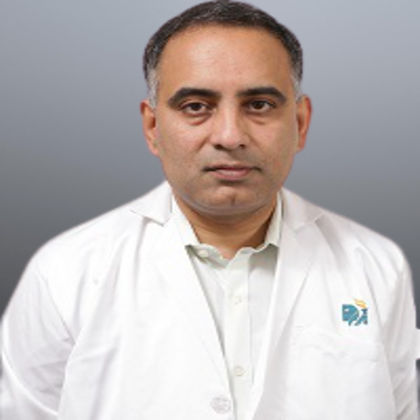
Dr. Raja T
Oncologist
20 Years • MBBS; MD; DM
Chennai
Apollo Hospitals Greams Road, Chennai
(200+ Patients)
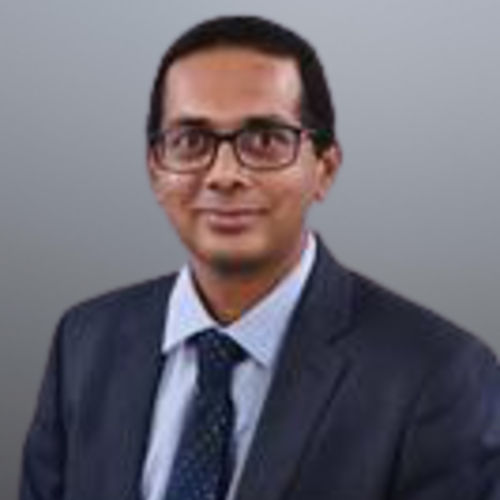
Dr. Vishwanath S
Oncologist
8 Years • MBBS, MD, DM, Fellowship at MD Anderson Cancer Center
Bengaluru
Apollo Spectra Hospitals, Koramangala, Bengaluru
Consult an Oncologist for the best advice

Dr. Sanchayan Mandal
Medical Oncologist
17 Years • MBBS, DrNB( MEDICAL ONCOLOGY), DNB (RADIOTHERAPY),ECMO. PDCR. ASCO
Kolkata
MCR SUPER SPECIALITY POLY CLINIC & PATHOLOGY, Kolkata

Dr Gowshikk Rajkumar
Oncologist
10 Years • MBBS, DMRT, DNB in Radiation oncology
Bengaluru
Apollo Clinic, JP nagar, Bengaluru

Dr. Ruquaya Ahmad Mir
Surgical Oncologist
20 Years • MBBS, DNB
Delhi
Apollo Hospitals Indraprastha, Delhi
(25+ Patients)

Dr. Raja T
Oncologist
20 Years • MBBS; MD; DM
Chennai
Apollo Hospitals Greams Road, Chennai
(200+ Patients)

Dr. Vishwanath S
Oncologist
8 Years • MBBS, MD, DM, Fellowship at MD Anderson Cancer Center
Bengaluru
Apollo Spectra Hospitals, Koramangala, Bengaluru
More articles from Pancreatic Cancer
Frequently Asked Questions
1. What is the first noticeable sign of pancreatic cancer?
For many people, the first noticeable sign is jaundice (yellowing skin and eyes), especially if the tumour is in the head of the pancreas. However, abdominal or back pain and unexplained weight loss are also very common initial symptoms.
2. Can pancreatic cancer be found early?
It is very difficult to find early due to its location and vague symptoms. There are no simple, reliable screening tests for the general public. Early detection often relies on recognising symptoms and seeking prompt medical attention, especially for those with known high risk.
3. Is pancreatic cancer always fatal?
While it has a lower survival rate than many other cancers due to late detection, it is not always fatal. Outcomes are significantly better if the cancer is caught at an early, localised stage and can be surgically removed. Pancreatic neuroendocrine tumours also generally have a more favorable prognosis.
4. Who is most at risk for pancreatic cancer?
The risk is highest for people over 65 who smoke, are obese, have a long history of type 2 diabetes, chronic pancreatitis, or a strong family history of the disease or certain genetic syndromes.
5. How can I check for pancreatic cancer at home?
You cannot self-diagnose pancreatic cancer at home. The symptoms are internal and require medical tests for diagnosis. The best thing you can do is be aware of the signs and risk factors and consult a doctor immediately if you have persistent concerns. Apollo24|7 offers convenient home collection for tests like liver function tests (LFTs) that can help investigate symptoms like jaundice, but a diagnosis requires imaging and specialist interpretation.
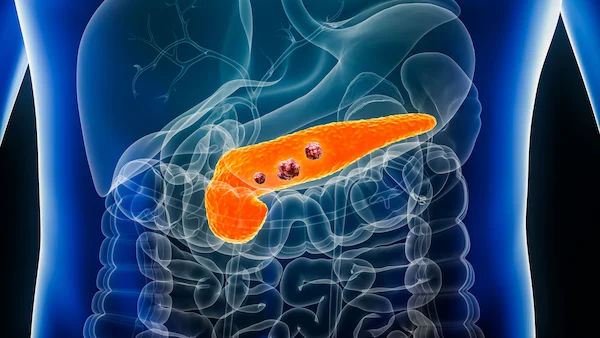
.webp)
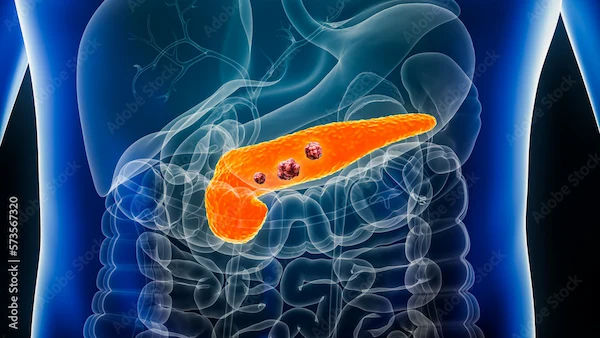
.webp)
